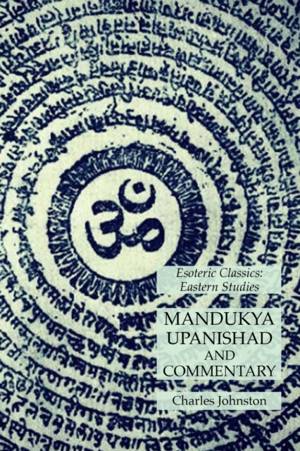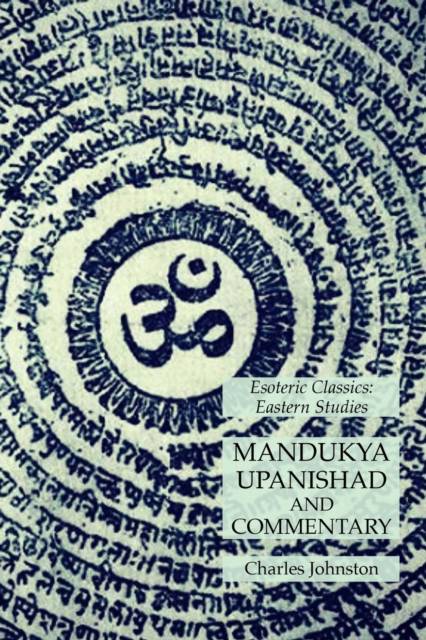
- Afhalen na 1 uur in een winkel met voorraad
- Gratis thuislevering in België vanaf € 30
- Ruim aanbod met 7 miljoen producten
- Afhalen na 1 uur in een winkel met voorraad
- Gratis thuislevering in België vanaf € 30
- Ruim aanbod met 7 miljoen producten
Zoeken
Mandukya Upanishad and Commentary
Esoteric Classics: Eastern Studies
Charles Johnston
Paperback | Engels
€ 20,45
+ 40 punten
Omschrijving
Mandukya Upanishad discusses the syllable Aum, presents the theory of four states of consciousness, and asserts that Aum is Brahman, which is the Whole, and that Brahman is this self. The Mandukya Upanishad is notable for having been recommended in the Muktikā Upanishad, through two central characters of the Ramayana, as the one Upanishad that alone is sufficient for knowledge to gain moksha, and as first in its list of eleven principal Upanishads. The text is also notable for inspiring Gaudapada's Karika, a classic for the Vedanta school of Hinduism. Mandukya Upanishad is among the often cited texts on chronology and philosophical relationship between Hinduism and Buddhism.
Specificaties
Betrokkenen
- Auteur(s):
- Uitgeverij:
Inhoud
- Aantal bladzijden:
- 74
- Taal:
- Engels
Eigenschappen
- Productcode (EAN):
- 9781631184970
- Verschijningsdatum:
- 20/05/2021
- Uitvoering:
- Paperback
- Formaat:
- Trade paperback (VS)
- Afmetingen:
- 152 mm x 229 mm
- Gewicht:
- 122 g

Alleen bij Standaard Boekhandel
+ 40 punten op je klantenkaart van Standaard Boekhandel
Beoordelingen
We publiceren alleen reviews die voldoen aan de voorwaarden voor reviews. Bekijk onze voorwaarden voor reviews.











